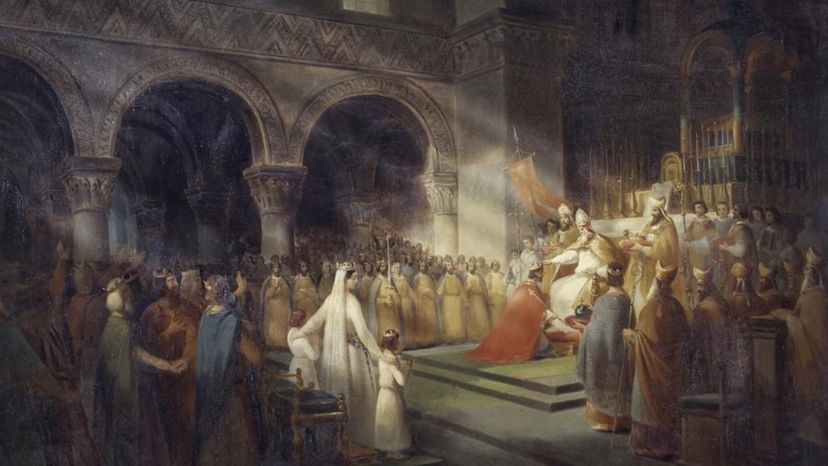
About This Quiz
Only in deep and serious theological debates can the grilling and eating of sausages be seen as an act of defiance! Believe it or not, this was a show of rebellion during the Protestant Reformation. This happened in Zurich, Switzerland, right in the city center. The culinary culprits were defying the Roman Catholic Church's ban on meat during Lent.
But that's only one moment of lightheartedness in a historical period that was far more serious. It sparked wars and cost many lives, and the changes it made to the now-worldwide religion of Christianity are with us to this day. How much do you know about this period in Christian history? What sparked the Reformation, and who was chiefly responsible? How did a king's marital affairs come into play? Why did southern Europe largely remain Catholic, while Northern Europe became Protestant?
Our quiz will test you on all these points and more. It will start easy -- you probably know who know nailed 95 theses to a church door -- but eventually get deeper into the details. The Reformation wasn't really one movement, after all. There were different branches of Protestant thought, some of which disagreed with one another quite violently. Fortunately, the debate between the Catholic and Protestant sides of Christianity is much more civilized today!
Advertisement
Advertisement
Advertisement
Advertisement
Advertisement
Advertisement
Advertisement
Advertisement
Advertisement
Advertisement
Advertisement